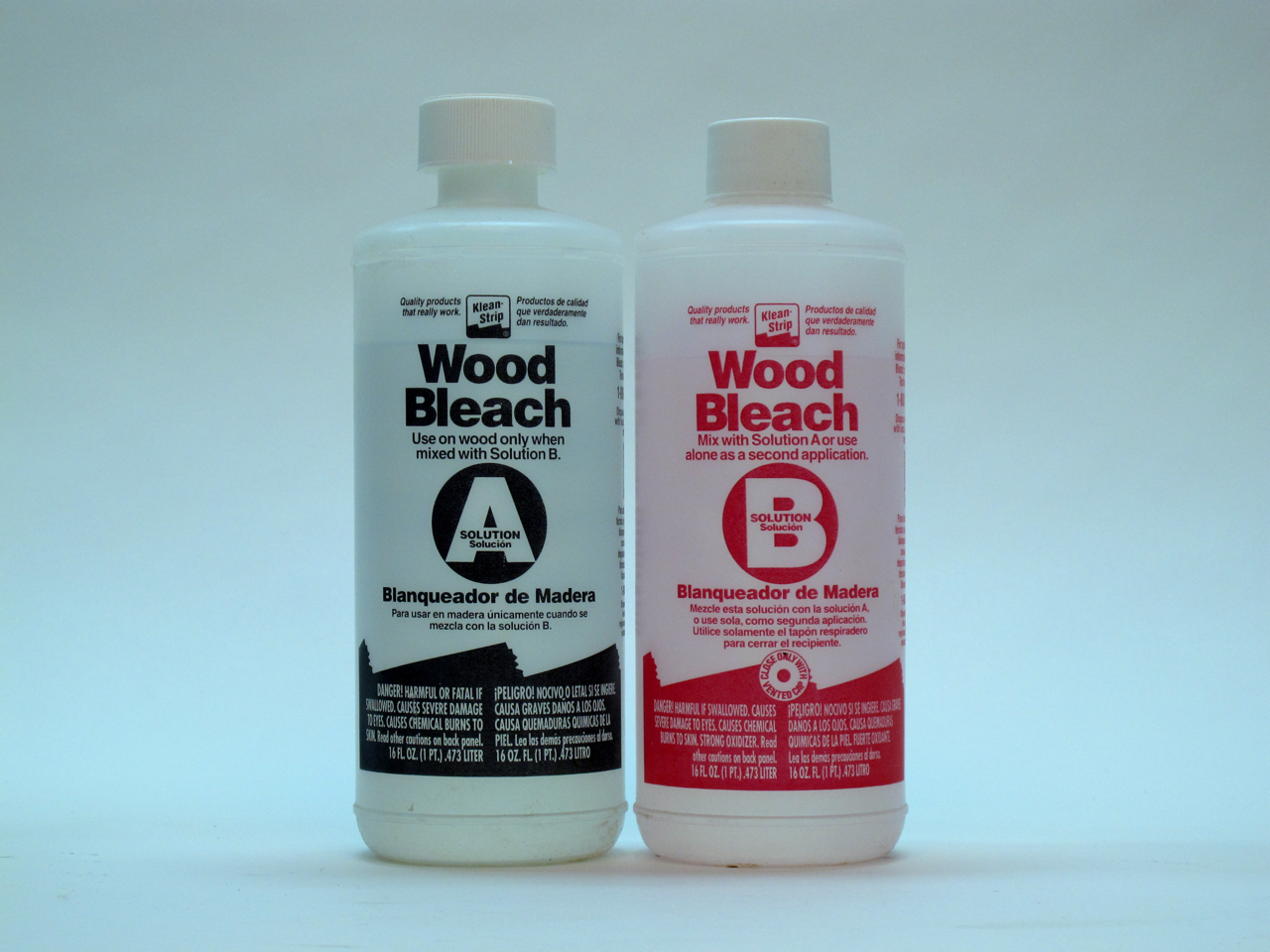Picture this: You’re mopping your kitchen floor, and a rogue stain appears – a stubborn coffee spill, perhaps, or the remnants of a spilled glass of red wine. You reach for the bleach, thinking, “This will surely do the trick!” But hold on a minute. Is bleach truly a safe and effective solution for your precious wood floors? The answer, unfortunately, is more complicated than a simple yes or no.

Image: www.popularwoodworking.com
This article aims to delve into the world of wood floor cleaning and the common practice of using bleach – a topic that often sparks vigorous debate amongst homeowners and professional cleaners alike. We’ll explore the potential benefits and drawbacks of using bleach on wood floors, and offer you a clear understanding of when it might be appropriate and when it’s best to steer clear.
Understanding the Power of Bleach
Bleach, often known as sodium hypochlorite, is a potent disinfectant. Its ability to kill bacteria, viruses, and fungi makes it a staple in numerous cleaning solutions. This power is directly related to its chemical properties. Bleach releases a powerful oxidizing agent, breaking down organic materials and destroying microorganisms.
The Controversy: Bleach and Wood Floors
While bleach can seem like a quick fix for stubborn stains, its use on wood floors is a contentious matter. Here’s why:
- Bleach is Highly Reactive: Bleach reacts readily with many materials, including wood. This reaction can cause discoloration, bleaching of the wood’s natural color, and even damage to the wood’s structure, especially softer species like pine.
- Wood Finishes Aren’t Invincible: Most wood floors have a protective finish – polyurethane, wax, or oil – to shield them from scratches and stains. However, bleach can strip away these finishes, leaving the wood vulnerable to future damage.
- Potential for Stains: Not all stains are created equal. Organic stains, like those from coffee or wine, might respond well to bleach, but inorganic stains like rust or mineral deposits, might be unaffected or worse, become worse.
When Bleach Might Seem Like a Good Idea – And Why You Should Reconsider
There are scenarios where homeowners might be tempted to use bleach on their wood floors:
- Mildew or Mold Growth: In humid areas or after a water damage event, mold or mildew can form on wood floors. Bleach’s disinfectant properties can be tempting as a solution.
- Heavy Staining: If a stain doesn’t respond to more gentle cleaning methods, bleach might seem like a last resort.
However, before you reach for the bleach, consider these crucial points:
- Alternative Cleaning Solutions: There are gentler but equally effective ways to tackle mildew, mold, and even stubborn stains. For example, using a mixture of baking soda and water, vinegar, or even a commercial wood floor cleaner, may prove more effective and safer for your floors.
- Testing the Bleach: Always test a small, hidden area of your floor with bleach before applying it to the entire surface. This will give you an idea of how the wood will react and if any discoloration or damage will occur.

Image: mromavolley.com
Expert Insights: Key Considerations For Safe and Effective Wood Floor Cleaning
Wood floor cleaning experts emphasize the following points, particularly when considering bleach:
- Assess Your Wood Floor: Identify the type of wood, the finish, and the age of the floor. Knowing these factors can help you determine if your floor can tolerate bleach.
- Read the Manufacturer’s Recommendations: Always check the care instructions provided by the manufacturer of your wood floor. They often have specific guidelines for cleaning.
- Use Diluted Bleach With Caution: If you do decide to use bleach, dilute it significantly (1:10 ratio with water) and apply it sparingly. Use a soft cloth or sponge and avoid scrubbing harshly.
Can Bleach Be Used On Wood Floors
Conclusion: Beyond Bleach: Empowering Your Wood Floor Care
While bleach may seem like a quick fix for a messy floor, it carries risks that often outweigh the potential benefits. Instead of resorting to harsh chemicals like bleach, consider gentler, safer alternatives, including specialized wood floor cleaners.
Empower yourself with knowledge: Research safe and effective cleaning methods for your wood floor type, and when in doubt, consult a professional. Remember, an informed approach will help you preserve the beauty and longevity of your wood floors for years to come.






